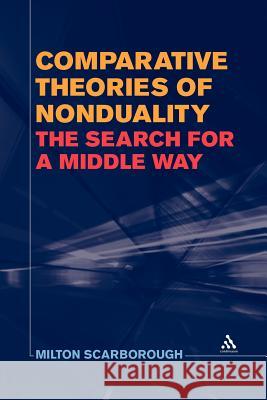Comparative Theories of Nonduality: The Search for a Middle Way » książka
Comparative Theories of Nonduality: The Search for a Middle Way
ISBN-13: 9781441159021 / Angielski / Miękka / 2011 / 248 str.
Comparative Theories of Nonduality: The Search for a Middle Way
ISBN-13: 9781441159021 / Angielski / Miękka / 2011 / 248 str.
(netto: 272,92 VAT: 5%)
Najniższa cena z 30 dni: 188,34
ok. 16-18 dni roboczych.
Darmowa dostawa!
It is a commonplace that while Asia is nondualistic, the West, because of its uncritical reliance on Greek-derived intellectual standards, is dualistic. Dualism is a deep-seated habit of thinking and acting in all spheres of life through the prism of binary opposites leads to paralyzing practical and theoretical difficulties. Asia can provide no assistance for the foreseeable future because the West finds Asian nondualism, especially that of Mahayana Buddhism, too alien and nihilistic. On the other hand, postmodern thought, which purports to deliver us from the dualisms embedded in modernity, turns out to be merely a pseudo-postmodernism. This book's novel idea is that the West already contains within one of its more marginalized roots, that of ancient Hebrew culture, a pre-philosophical form of nondualism which makes possible a new form of nondualism, one to which the West can subscribe. This new nondualism, inspired by Buddhism but not identical to it, is an epistemological, ontological, metaphysical, and praxical middle way both for the West and also between East and West.











